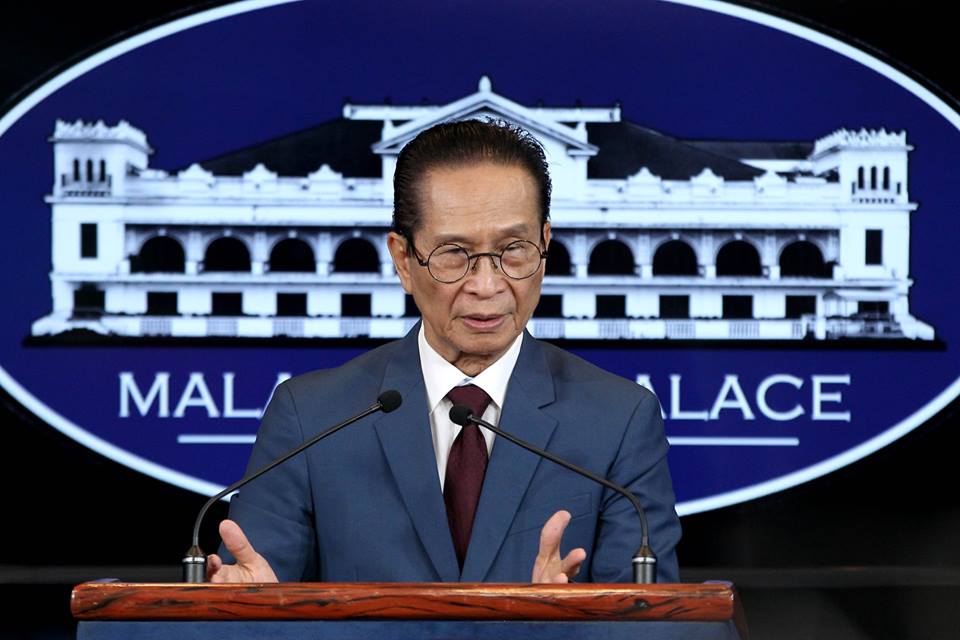Headline
Palace welcomes dismissal of quo warranto petition vs. PRRD

Presidential Spokesperson and Chief Presidential Legal Counsel Salvador Panelo said that although the executive has yet to receive an official copy of the high court’s ruling, it agreed with the high court’s grounds for the dismissal. (File Photo: Office of the Presidential Spokesperson/Facebook)
MANILA – Malacañang on Wednesday welcomed the decision of the Supreme Court to dismiss the quo warranto petition filed by suspended lawyer Elly Pamatong against President Rodrigo R. Duterte.
Presidential Spokesperson and Chief Presidential Legal Counsel Salvador Panelo said that although the executive has yet to receive an official copy of the high court’s ruling, it agreed with the high court’s grounds for the dismissal.
“We note that the Supreme Court has already dismissed the petition for quo warranto filed by Atty. Elly Pamatong against President Rodrigo Roa Duterte, which sought to oust the Chief Executive from his position due to a supposed election technicality in 2016,” Panelo said in a statement.
“We have treated such petition at the outset as without basis in fact and in law. The Supreme Court has validated our view on the matter,” he added.
Citing reports, Panelo said the subject petition was dismissed because Pamantong has no legal standing to file the petition and that the period for the quo warranto case had already lapsed.
“While we have yet to receive an official copy of the High Court’s ruling, reports say that the subject petition was dismissed due to lack of standing on the part of the suspended lawyer, as well as because of the lapse of the prescriptive period for filing a quo warranto case by an individual claimant of a government position. We agree with the grounds for the dismissal,” Panelo said.
Panelo said that it is only the Solicitor General which may file a petition for quo warranto to oust a person unlawfully holding a public office.
“In the instant case, Atty. Pamatong did not bring the case under the name of the Republic of the Philippines, not being an official of the Government,” Panelo said.
He further said that Pamatong cannot also be classified as an individual who has a claim to the seat of the Presidency, not even being a legitimate candidate in the 2016 elections.
“His allegation that he assumed the Presidency last June 30, 2016 is nothing but fantasy,” Panelo said.
Panelo also said a quo warranto petition must be commenced within “one year after the cause of such ouster or the right of the claimant to hold such office arose.”
“Atty. Pamatong cannot argue that prescription does not run against him (not being the State) and considering further that his cause of action, if at all, arose when PRRD was inaugurated President last June 30, 2016, prescription has indeed set in against him,” Panelo said.
Panelo also said that it was “not just” for Pamatong to file a quo warranto case because it “muddles the current order” and that it has “distracted” the President’s duties.
“This Office believes that the purpose of prescription for private individual-initiated quo warranto cases is not just for such person to be unmindful on his or her purported claims to the office and then untimely muddles the current order through an action but more importantly for the seated official to have repose and peace of mind after a year so he can focus on his duties without being distracted by a baseless petition for quo warranto,” he added.





















